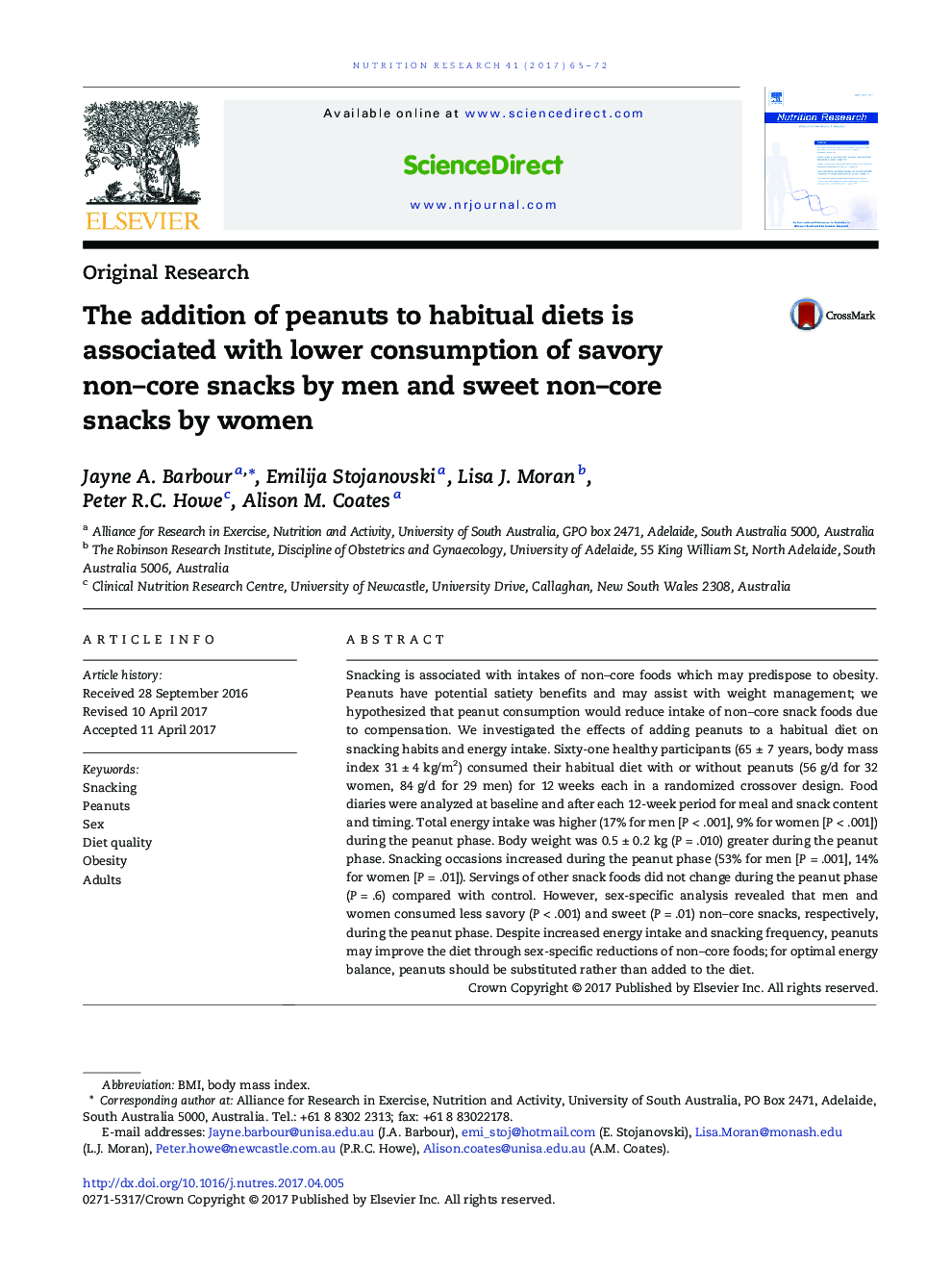| Article ID | Journal | Published Year | Pages | File Type |
|---|---|---|---|---|
| 5588570 | Nutrition Research | 2017 | 8 Pages |
Abstract
Snacking is associated with intakes of non-core foods which may predispose to obesity. Peanuts have potential satiety benefits and may assist with weight management; we hypothesized that peanut consumption would reduce intake of non-core snack foods due to compensation. We investigated the effects of adding peanuts to a habitual diet on snacking habits and energy intake. Sixty-one healthy participants (65 ± 7 years, body mass index 31 ± 4 kg/m2) consumed their habitual diet with or without peanuts (56 g/d for 32 women, 84 g/d for 29 men) for 12 weeks each in a randomized crossover design. Food diaries were analyzed at baseline and after each 12-week period for meal and snack content and timing. Total energy intake was higher (17% for men [P < .001], 9% for women [P < .001]) during the peanut phase. Body weight was 0.5 ± 0.2 kg (P = .010) greater during the peanut phase. Snacking occasions increased during the peanut phase (53% for men [P = .001], 14% for women [P = .01]). Servings of other snack foods did not change during the peanut phase (P = .6) compared with control. However, sex-specific analysis revealed that men and women consumed less savory (P < .001) and sweet (P = .01) non-core snacks, respectively, during the peanut phase. Despite increased energy intake and snacking frequency, peanuts may improve the diet through sex-specific reductions of non-core foods; for optimal energy balance, peanuts should be substituted rather than added to the diet.
Related Topics
Life Sciences
Biochemistry, Genetics and Molecular Biology
Endocrinology
Authors
Jayne A. Barbour, Emilija Stojanovski, Lisa J. Moran, Peter R.C. Howe, Alison M. Coates,
